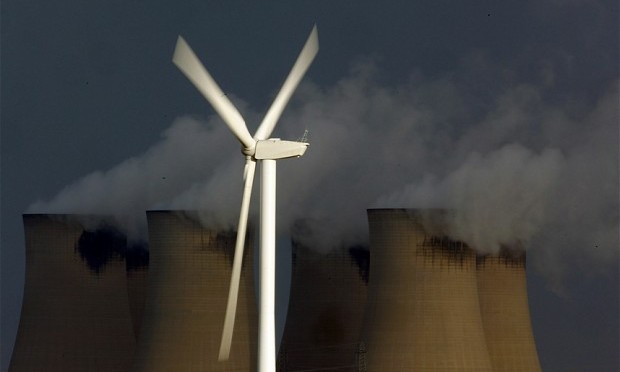As more and more Americans become aware of the critical need to combat global warming, one of our key weapons literally is blowing in the wind.
A recent report by the Department of Energy’s National Renewable Energy Laboratory says wind power will be a key component of the renewable energy blend it says can provide 80 percent of our electricity by mid-century.
Wind power has unique advantages over other forms of clean renewable energy, including the Obama administration’s favorite — solar power. For starters, it’s clean, super-efficient and relatively inexpensive compared to its major competitors.
Environmental critics once complained that the whirling blades of giant wind towers would destroy large numbers of birds, including many endangered species. But studies show that hasn’t happened, and today even the Audubon Society supports wind energy. Global warming, it observes, is a much bigger threat to North America’s bird populations than the nation’s estimated 84 million cats.
Nevertheless, large numbers of conservative Republicans and, surprisingly, many liberal Democrats remain skeptical and often vehemently opposed to continuing federal subsidies to help jump-start an industry that quite likely will prove to be the greenest of the emerging green energies.
While conservatives generally cite free-market beliefs, many on the left appear to be trotting out the NIMBY principle — not in my backyard — as the top reason for their resistance.
For instance, Robert F. Kennedy Jr., a senior attorney for the National Resource Defense Council and the son of Sen. Robert Kennedy, was strongly criticized by many environmental groups for opposing the Cape Wind project that seeks to build 130 giant wind turbines in Nantucket Sound. The so-called wind farm would deliver electricity to Cape Cod, Martha’s Vineyard and Nantucket.
The Kennedy family compound at Hyannisport, Mass., overlooks the site of the proposed wind farm, which Kennedy and many other Cape Cod residents say would mar the sound’s pristine beauty.
In a 2011 op-ed in the Wall Street Journal, Kennedy called the project a “rip-off” and warned it would desecrate “sacred Native American land, including land now under shallow waters in the sound, where the turbines would obstruct religiously significant views of the sunrise and sunset.”
Kennedy failed to mention that there are few Native Americans around to enjoy such views these days. Almost all of the sea view property on Cape Cod and Nantucket Island is owned by the immensely rich 1 percent.
Unfortunately for Kennedy and other Cape Cod squires, the rapid growth of wind power puts opponents in the unenviable position of trying to put the powerful wind genie back in the bottle. There already are more than 45,000 wind energy turbines harvesting cheap, renewable electric power from American skies.
Federal subsidies have helped wind power, but they also aid other components of our national energy grid, including Big Oil. The small investment in wind power by American taxpayers today will return huge dividends over the next few decades, including the most important — keeping our small planet safely inhabitable for future generations.
Even staunch conservatives like Rep. Steve King of Iowa agree on that. “Wind power can deliver tremendous benefits — in jobs, investment and clean energy — to Iowa and the nation,” he wrote in Politico last year.
Concerned Americans across the political spectrum should take note.
Wayne Madsen is a contributing writer to www.onlinejournal.com. Readers may write to him at National Press Club front desk, 529 14th Street NW, Washington, D.C. 20045.

